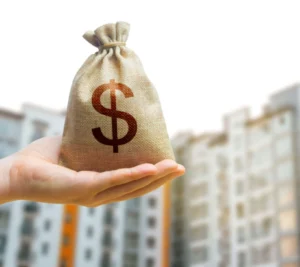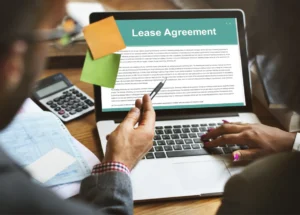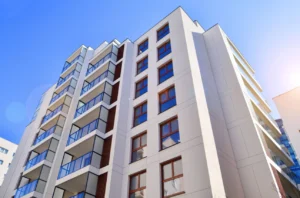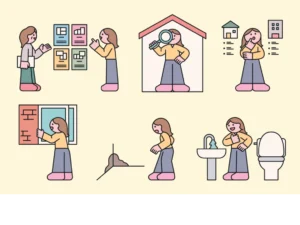What Will America’s Housing Market Look Like After The Coronavirus Pandemic Ends? Here’s What 5 Top Producing Real Estate Agents Had To Say
 It’s never easy to buy or sell a home—even in the best market conditions. During the Covid-19 pandemic, it’s become nearly impossible.
It’s never easy to buy or sell a home—even in the best market conditions. During the Covid-19 pandemic, it’s become nearly impossible.
I know this firsthand. My wife and I listed our house for sale in late February, shortly before Washington state reported its first Covid-19 related deaths. We went under contract in less than 24 hours. Full ask. 30 day close. Everything was going exactly according to plan.
Until the Dow cratered and it all fell apart.
Our story isn’t unique in the new corona normal. The U.S. housing industry is on lockdown. New construction sales centers are empty. In most states real estate agents can’t show houses. Inspectors won’t inspect. Appraisers can’t appraise. Even cash buyers willing to waive contingencies can’t get an appointment. Closings for homes that went under contract before America put its economy on ice—if they happen at all—are now done virtually via Zoom, Docusign, and drive-through title companies in order to comply with stay-at-home orders and social distancing guidelines.
Real estate’s clobbering runs wide and deep. Hospitality, including hotels, restaurants, and bars, took the first body blow in early March, shut down by Gubernatoruial fiat beginning with California before spreading to states east. Malls, shopping centers, and sporting and entertainment venues locked down next, emptying almost every physical location where people densely gather nationwide.
Short-term vacation and AirBnB rentals, which briefly saw a reservation surge in popular tourist destinations and remote rural communities as people fled dense urban hotspots like New York City, were promptly banned by many local city councils fearful that their limited healthcare infrastructure and off-season supply chains would be overwhelmed by outsiders. Year over year short-term rental reservations for 2020 summer travel are now down by 75%. Hosts, many of whom rely on their short-term rentals for critical supplemental income or, in many cases, all of it, now credit Covid-19 for the “Cancellation Apocalypse”.
The effects of real estate’s upending further downstream have been equally swift. Many building supply wholesalers and hardware stores are shuttered, as are the majority of building materials factories and manufacturing plants across the country that keep them stocked due to quarantines and curfews for the workers who staff them. In some cities like Philadelphia, residential and commercial construction sites have been shut down altogether, except for critical need projects like hospitals and prisons.
Think about that for a second: In America’s fifth most populous city, where construction and housing have been booming after decades of stagnating development, swinging a hammer is technically, temporarily illegal.
Uncertainty is now housing’s greatest future risk. No one knows how persistent the coronavirus will be, how long America’s economy will remain locked down, or what the lasting social and emotional toll on how we live, work, and interact with one another will be. Humans, however, are innately collective creatures. More critically, our economy is fundamentally based on the act of congregating. When the state and local lockdowns lift and America’s consumer economy reignites, most restaurants, bars, and retail stores will likely experience more pent-up demand than they can handle after months of national isolation.
But what about housing?
Every economic crisis is intrinsically Darwinian, producing winners and losers while shifting the natural balance of power. So what will real estate post-Covid-19 look like when the American economy re-opens? What will the lingering impacts of trillions of paper money lost, long-term unemployment, and fears that the coronavirus could re-emerge in six months be? And how will the essential emotional calculus of buyers and sellers re-align in the new post-corona normal?
There are no simple answers. Opinions and models run rampant on how fast the economy will re-boot. Few economists believe that we’re in for the brutal elongated “U” that America experienced through the Great Recession. Most predict a more rapid corona “V”, especially for manufacturing and retail, pointing to the speed with which businesses and factories have re-opened in China and South Korea.
Buying a house, however, isn’t the same as turning the Frappuccino machines back on, or pulling the trigger on a bigger flat-screen TV in case we’re locked down again. Housing is an emotional, big ticket game, inextricably linked to macro-level downwind pressures on employment, wages, job mobility, the stock market, and ultimately, consumer confidence—whose quick resuscitations are still far from certain.
To get the most up-to-date intelligence on the present and future state of the housing market I asked a five of America’s top agents what’s happening on the frontlines.
Uniformly, every realtor in America right now seems to agree on one thing: the industry’s “non-essential” status in many states and cities is crushing the market—exactly when the spring selling season should be opening the flood gates.
For many real estate brokers, it’s hard not to whiff some political favoritism here. Pennsylvania Governor Tom Wolf put bike repair shops on his “life-sustaining” business list—as well as his own kitchen cabinet supply company—but placed realtors on lockdown. In Massachusetts, wood chippers still grind away since someone effectively lobbied Governor Charlie Baker’s office to make landscapers essential, while real estate agents sit idly at home.
Real estate’s non-vital status hasn’t gone over without a fight—including hours of internal debate at the highest levels of America’s largest brokerages like Compass and Berkshire Hathaway.
“Last Friday, the Pennsylvania Association of Realtors (PAR) filed an amicus brief supporting a lawsuit filed against Governor Tom Wolf,” explains Kristin McFeely, owner of Compass’s founding Philadelphia brokerage. “The lawsuit specifically requests that the Governor designate real estate services as a life-sustaining business, contending that the three essentials to life are food, clothing and shelter. The basic premise is that the Governor is preventing Pennsylvanians’ ability to gain shelter.”
McFeely, however, is also quick to acknowledge the more complicated moral and public health questions the lawsuit raises. Bringing a potential buyer into a stranger’s home right now undermines the essential premise of social distancing while increasing the unanticipated interpersonal contact that could accelerate coronavirus’s community spread in the very places Americans have been instructed to self-isolate—at home.
“I honestly have mixed feelings about it,” says McFeely. “While I can’t think of a time when people around the world have depended on their homes more completely than they do right now, I also have an obligation to my community to stay home and to keep my agents at home to flatten the curve. I think ultimately that we need to move the real estate industry forward in the coming weeks and months in a way that protects both the community and those involved in providing and receiving real estate services. And there’s no easy answer to that yet.”
Notwithstanding real estate’s “non-essential” status in many states, homes are still moving, even those with outsized price tags. Agents on their toes with willing buyers are adapting rapidly. And motivated sellers are still closing deals.
“The Covid-19 pandemic is really teaching us how we need to adjust and learn new ways to transact in this business,” Peggy Olin, President and CEO of Miami’s OneWorld Properties tells me. Olin is one of South Florida’s elite luxury agents catering to foreign and out-of-state buyers. “Transitioning into the digital and virtual world is more important now than ever. Currently, because of the state of the market, agents need to be more creative than they’ve ever been to have their listings stay relevant. Many are scrambling to have more of a virtual presence, from doing 3D tours, virtual presentations to agents going by themselves into a property, and having video previews of their listings. I’ve even heard that some banks are doing drive-by appraisals with properties that are already under contract and relying on virtual tours and images that already exist for the property to get to the settlement table.”
Real estate’s new virtual reality may well have long-lasting impact. Maetterport cameras, which build virtual 3D tours using the company’s proprietary optical technology and software—long considered a luxury—have become worth their weight in gold almost overnight. Aspen, Colorado’s leading luxury agent, Carrie Wells from Coldwell Banker Mason & Morse, invested in one four years ago to market her listings to foreign and out-of-state clients who make up the majority of Aspen’s high-end buyers. It’s now her most important sales tool.
“There’s no question that virtual tours are a very effective way to help buyers experience a property,” says Wells. “I invested in a Matterport camera four years ago and have been marketing properties with virtual tours since then. Yet now it is super important to have this technology. I am also using FaceTime to help buyers walk through a property. Virtual open houses that are broadcast on Facebook, Instagram and websites are another new tool to expose a listing to everyone without a potential buyer even needing to be in the area.”
Not every agent, however, is sold on the Amazon-ization of real estate. Buying a home isn’t like buying dog food online, says Billy Rose, Founder and President of luxury brokerage The Agency based in Beverly Hills.
“While there is definitely a material increase in virtual and FaceTime tours, our housing stock in LA is incredibly diverse, and it’s extremely difficult if not impossible to truly get a sense of a property without actually being there. How good is the quality of light? How high are the ceilings? How noisy are the surroundings? How representative are the pictures of the actual view? We’ve all seen pictures taken from a certain angle making a lawn look like a football field. Some sellers may be willing to take a ‘flyer’ on a buyer who hasn’t actually seen the property in person. But unless the price is an undeniable bargain, most buyers will insist on visiting the property before they close.”
In hot spot cities like New York, where the corona pandemic first exploded and has continued to wreak daily mayhem on every business and industry, agents have been forced to be even more agile, while simultaneously ensuring the safety of their clients and their families.
“I can’t speak to the real estate market across the nation,” says Louise Phillips Forbes, Halstead’s top producing Manhattan agent and one of New York City’s leading power brokers among developers. “But for New York City we were on fire until last month. For the eight plus deals I navigated under contract, every one of them had more than one offer and in two cases four to five. So we’ve been forced to adapt from the ‘Old School Paper Shuffling Mentality’ to innovation and streamlining everything to get them closed. On March 20th (New York) Governor Cuomo issued an Executive Order allowing ‘Virtual Notarization’. This gave us the ability to get a $19 million deal done 100% in absentia recently. Crisis teaches us to be resilient, creative and gritty. Where there is a will there is a way to get any deal done. Closings are still happening. Banks have learned to support and accept “desktop” appraisals, coop boards are facilitating interviews through Zoom and Skype. We had one deal close recently where there were four cars in a parking lot representing the bank’s attorney, the seller’s attorney, the buyer’s attorney, and the title company ‘masked and gloved’ running back and forth getting signatures. That brings me hope that we can get through this.”
Given the cliff fall in showings and closings since the coronavirus outbreak, it might be easy to think that America’s real estate industry has shifted from a seller’s to a buyer’s market. Not so fast, says Olin.
“Real estate is still a long-term investment, not a short term one,” she tells me. “There are many buyers that even now are suddenly empty nesters or need to downsize or the opposite—get into a larger home because they have a growing a family. Whichever the case, many buyers have to continue moving forward with transactions. Real estate is still a hot market.”
The Agency’s Rose agrees, remaining bullish that housing’s underlying fundamentals haven’t changed since the Covid-19 pandemic began.
“Volatility and uncertainty always paralyze financial and real estate markets,” says Rose, “But people who were going to buy or sell 2-3 months ago have merely shifted their timing down the line. There may be some buyers who now can’t afford what they wanted. And there may be some sellers who will hold off selling until they perceive the market to be at a point they view as more favorable to them. But there are certain life events—like death, birth, marriage, divorce, and downsizing—which necessitate home sales. The real estate market may not fly quite as high for a while. But there will always be transactions.”
Halstead’s Phillips Forbes similarly sees emotion as the driving force in her clients who are still looking to buy.
“Owning a home has been part of the American Dream since WWII. Real estate for most people is still the most important decision most people will ever make. My best advice for agents is to have a voice with your clients, be opinionated, and don’t be afraid to remind them to quiet the noise of the news and to look within to know what’s right for you and your family.”
On the selling side, most agents I spoke with aren’t holding their clients back either, especially since so many potential buyers are stuck at home spending hours searching for homes online.
“Pricing is the most important thing that a seller can focus on right now if they need to sell,” Mason & Morse’s Wells advises. “Aspen’s market has a seasonality component to it since we are a resort community which makes us unique. But across the board there are many buyers right now looking for a deal so positioning a property at the right price point is critical if someone needs to sell.”
Billy Rose isn’t advising his sellers to sit on the sidelines either.
“If you’re selling, get your property on the market,” he advises. “Don’t wait until ‘better times’. We don’t know when that will be, and most MLSs are pausing the Days On Market counter at the moment so sellers aren’t prejudiced in this regard. Also, don’t price based off the ‘outlier’ or premium comp. You need to create urgency by pricing ahead of the market. If you are new to the market, then you want your price to be compelling. If you are already on the market, then you don’t want your reduction to be a non-needle mover; you don’t want to be the tree that falls in the forest that no one hears. Sellers also need to be mindful that now is not the time to be trying to drive a hard bargain. Don’t scare buyers off. Be accommodating if you want to sell.”
For Olin in South Florida, keeping properties moving isn’t just about pricing strategy. She’s adamant that her agents focus their attention on their marketing strategies as well as the details of their clients’ homes.
“This is the time to really do your market research,” says Olin. “With so much information available for clients at their fingertips, now is the time to understand the value and inventory of the homes that buyers want to be in. Engage in conversations with other agents, see what they are doing right now to promote their listings, and see how they can help you moving forward. Advise your clients to go through their home and declutter and be prepared and ready for when we see the pandemic end. Most of all be realistic. Don’t overprice your home in this market, especially if you need to move it.”
While the broad consensus was that the residential housing market will quickly re-set, every agent I spoke with agreed that real estate fundamentally will never quite be the same again. Economic crises have long-lasting effects on people’s psyches and decision-making as well as their pocketbooks. Covid-19’s long-term re-ordering will take months, if not years, to shake out. What the new normal looks like is anyone’s guess.
“While this is a particularly stressful time, I’m seeing people connecting with their friends and family on a deeper and more ‘present’ level,” says Rose. “I’m hopeful that, once we are all freed from our homes, we will all be grateful of our lives and the simple things that truly give it substance. I believe that there will be a consciousness towards more simplicity, so the trend may well be away from the ‘bigger is better’ mentality which has taken over many markets. And, since many of us have retreated away to remote and isolated locations, I think that people will have a thirst to be with people as opposed to getting away from them. As a result, I believe that the second and third home markets will be slower in re-gaining momentum.”
Mason & Morse’s Wells predicts a similar shift in buyer’s priorities about where and how they want to live, in Aspen and beyond.
“Every luxury market was seeing a huge uptick in the first quarter of this year until early to mid-March, trending with the stock market,” says Wells. “Now the desire to own property in places with a healthy lifestyle has been heightened. We are also all experiencing shifts in how we do business and even though we are all craving more interaction right now, we are also all witnessing a more efficient way to do things like working from home or remotely. I think many people will decide they don’t need to commute as much or live in a dense urban setting.”
The post-Covid re-ordering will almost certainly have unexpected upstream effects as well, including how architects envision the new definition of “home” after months of people sheltering in place. This will take the form of more touchless technology in high-rise buildings, an increased use of remotely accessible technology like locks and thermostats, and home designs built for #WFH (work from home).
“Now that America has gotten a crash course in working from home, it will become much more of our everyday lives I think,” predicts Rose. “I’m betting that home offices which are fitted out for a digital work existence will become the newest ‘must have’ amenity. Imagine ‘his and her’ home offices built ready for the now ubiquitous Zoom conference, replete with green screen for your virtual background of choice.”
Compass’s McFeely sees Covis-19’s lasting impacts as more profound beyond just technology, or where and why people buy.
“In terms of social and cultural shifts, I think that people are truly recognizing the value of home and it’s never been more apparent how much our homes matter,” McFeely tells me. “I think the weeks and months we’re spending inside are going to forever change our ideas of home. Home is where we are eating, sleeping, playing, working and homeschooling right now. Those who will continue to work from home may be more in tuned to work and home office spaces. Outdoor spaces, patios, and decks may seem like a necessity now. And I think safety and a sense of community are going to become more important.”
As for the future of housing, no agent’s a prophet. But everyone I spoke with is sanguine and already preparing for a delayed spring selling season—all of which should keep buyers and sellers optimistic.
“This is not 2008,” says Olin. “We are in unchartered territory with the coronavirus. But the Federal Reserve is taking incredible steps to preserve our economy. This is more like the market after September 11th. It was unexpected. It came on quickly. It scared us. And people just froze. The same thing is happening right now. The corona pandemic came on equally as unexpected, stopping the economy and creating similar attributes. During that recession the value of real estate went up. I don’t think this is any different. I don’t think we will have a lot of activity over the next few months. But once we are out of this, it all picks up fairly quickly and by the end of the year I believe we are back to normal.”
Halstead’s Phillips Forbes is even more bullish on housing market post-corona, even in hardest-hit New York.
“I am poising myself and team to hit the ground running,” Phillips Forbes tells me. “We are pre-booking photographers, videographers, and floorplan vendors to continue moving forward as soon as the lockdown is lifted. New York real estate has been in a ‘correction mode’ for four years. It’s still an opportunistic moment for people to upgrade. History has taught us that New York real estate has led us through darker days of economic recovery including something as paralyzing as 9/11. With every transaction, real estate in America touches 13 jobs. That’s why it represents 5% of GDP. That’s why it will survive.”
Amen to that.
Source: forbes.com













 Accessibility
Accessibility